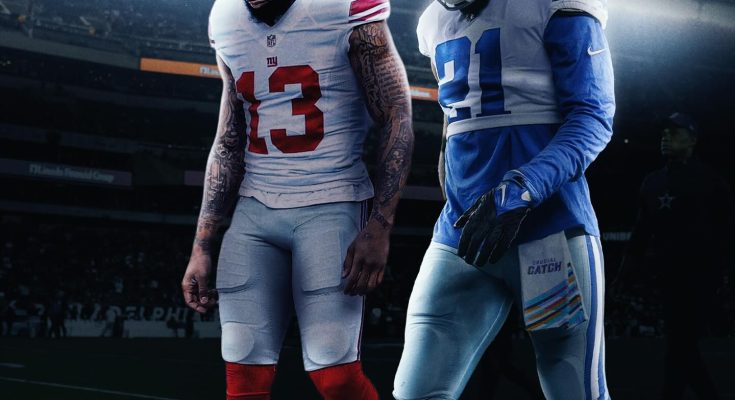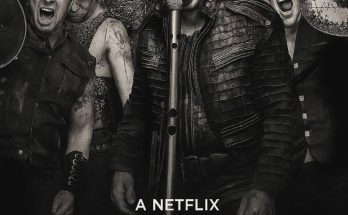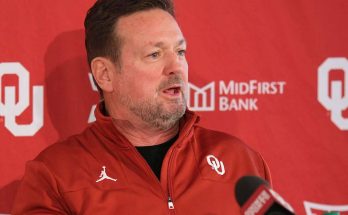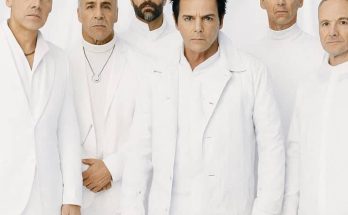With Week 1 of the 2025 NFL season officially underway, the buzz and anticipation that usually surrounds the start of another football year feels a little more sobering for longtime fans of the game. That’s because we may have quietly witnessed the final NFL snaps of two of the most electrifying offensive players of the last decade: Odell Beckham Jr. and Ezekiel Elliott. While neither has officially announced a retirement, both remain unsigned, and the lack of momentum toward any new contracts is beginning to speak louder than any formal farewell ever could. If this is indeed the end for OBJ and Zeke, it marks not just the conclusion of two individual careers, but the close of an era in which their names carried weight, swagger, and weekly expectations of highlight-reel performances.
Odell Beckham Jr. once felt like the very embodiment of the NFL’s future. Exploding onto the scene in 2014, Beckham didn’t just produce on the field—he captivated. His rookie campaign with the New York Giants was historic: 91 catches, 1,305 yards, and 12 touchdowns in only 12 games. And who could forget the catch? That impossible, physics-defying, three-fingered grab against the Cowboys on Sunday Night Football. It wasn’t just a highlight; it was a cultural moment. It turned Beckham into a household name virtually overnight. That single play represented what fans loved most about him: the acrobatic flair, the emotion, the raw talent that felt too big to be constrained by routes or playbooks.
For a few seasons, Beckham lived up to every bit of the hype. From 2014 to 2016, he averaged over 96 catches, 1,300 yards, and 11 touchdowns per year. His ability to take over a game, break open a defense, and bring energy to a struggling Giants franchise made him one of the most watched and marketable athletes in the league. He was as much a pop culture icon as he was a football player—dancing with Drake, starring in commercials, changing hairstyles almost as often as he changed defensive backs. But as with many great talents in the NFL, injuries and the grind of the league began to take their toll.
After being traded to the Cleveland Browns in 2019, many expected Beckham to form a dynamic pairing with quarterback Baker Mayfield. But that connection never quite materialized. He struggled with injuries, missed time, and when he was on the field, the chemistry just didn’t seem to click. Despite a few flashes of the old OBJ, the Browns years were largely underwhelming. In 2021, he was released mid-season and landed with the Los Angeles Rams—a move that briefly reignited the narrative. Beckham became a key contributor in the Rams’ Super Bowl LVI run, scoring a touchdown in the championship game before tearing his ACL late in the first half. That injury, his second ACL tear, was a cruel twist of fate. It derailed his momentum at the worst possible time, just as he was reminding the world of his abilities on the game’s biggest stage.
After sitting out the 2022 season to recover, he signed with the Baltimore Ravens for 2023. While his presence offered a veteran presence and leadership in the locker room, the on-field production never returned to peak form. He posted a modest stat line, and the flashes of explosiveness were fewer and farther between. The league, unforgiving and always moving forward, had begun to pass him by. Now, with the 2025 season underway and no team having extended a contract, the signs are there. There have been whispers of interest from several teams, but nothing has materialized. At age 32, with a long injury history and declining explosiveness, teams seem unwilling to take the risk—especially given the influx of younger, cheaper wide receiver talent entering the league every year.
Ezekiel Elliott’s trajectory followed a similar arc in some ways, though his rise and role were different. Drafted fourth overall by the Dallas Cowboys in 2016, Elliott was an instant force. Running behind one of the league’s best offensive lines, he led the NFL in rushing as a rookie with 1,631 yards, adding 15 total touchdowns. His blend of power, vision, and surprising breakaway speed made him a nightmare for defenses. Unlike some backs who take a while to adjust to the NFL’s speed and complexity, Zeke looked like he belonged from day one. His pairing with fellow rookie Dak Prescott gave the Cowboys a potent backfield that looked ready to dominate the NFC for years.
For the first few seasons, Elliott lived up to the hype. He led the league in rushing again in 2018 and was consistently among the league leaders in yards after contact and total touches. He became the focal point of Dallas’ offense, with the game plan often revolving around feeding him early and often. Zeke was a bell cow in the truest sense of the word—rarely coming off the field, absorbing contact, and grinding out tough yards week after week. At his peak, he wasn’t just a running back; he was a tone-setter, the kind of player whose presence wore down a defense and opened up opportunities for everyone else.
But as is often the case with running backs, the workload eventually caught up. By 2020, the signs of wear were visible. His yards per carry dipped, his explosiveness seemed diminished, and nagging injuries began to impact his availability and effectiveness. The Cowboys, perhaps in part due to the size of his contract, continued to lean on him heavily, but it became increasingly clear that he was no longer the same player. In 2023, after seven seasons in Dallas, the Cowboys released him. He signed a short-term deal with the New England Patriots, where he played a complementary role behind Rhamondre Stevenson. While he still showed flashes of the old Zeke—especially in short-yardage and pass-blocking situations—the days of 20+ carries and game-breaking runs were gone.
He returned to Dallas in 2024 in a sentimental reunion, but his role was limited. More of a locker-room leader than a consistent contributor, Elliott managed to add a few more touchdowns to his career total but never threatened to reclaim a feature-back role. Now, at 30 years old—a tipping point for most NFL running backs—Elliott finds himself without a team, with no firm reports of interest, and facing the harsh reality that the league often has no room for nostalgia.
The potential end for both Beckham and Elliott reflects a broader truth about the NFL: it is a league built on turnover, where yesterday’s stars are quickly replaced by today’s rookies. It’s a league that values production above all, and sentiment rarely factors into roster decisions. The shelf life of even the most talented players is limited, and when the decline sets in—whether due to injury, age, or diminished role—it often happens fast. One year you’re the face of the franchise, the next you’re struggling to land a veteran minimum deal.
Yet, it would be wrong to define the careers of OBJ and Zeke solely by how they ended. Both had stretches of dominance that most players can only dream of. Beckham redefined what it meant to be a receiver in the social media era, blending jaw-dropping athleticism with star power. He made the spectacular routine, and his impact went beyond box scores. He was a walking highlight reel, and for a time, he was one of the most feared wideouts in football.
Elliott, meanwhile, was the prototype of the modern workhorse back. His early years in Dallas were marked by incredible durability, consistent production, and a physical style that embodied everything the Cowboys wanted their offense to be. He was the heartbeat of the team during some of their most competitive recent seasons and gave the franchise a level of stability at running back that few teams enjoy.
For fans, the likely retirement of these two stars is bittersweet. On one hand, it’s difficult to see former greats fade away, their skills no longer matching the legend their names carry. On the other, there’s gratitude—for the memories, the excitement, the electricity they brought to the game. Their legacies are not diminished by the quiet end; rather, they are a reminder of how quickly greatness can come and go in a league that never stops evolving.
There’s always a chance that a team suffers an injury, takes a flyer on a veteran, and one or both of these players gets another opportunity. But that window is closing rapidly. As Week 1 continues without Odell Beckham Jr. or Ezekiel Elliott on a roster, the reality becomes harder to ignore. Their time in the NFL may truly be over. And if it is, the game says goodbye to two of its most recognizable faces of the past decade—players who lit up Sundays, dominated headlines, and helped shape the league’s identity during their primes.
The NFL doesn’t often pause to reflect. It’s a business that moves forward relentlessly, always searching for the next breakout star, the next rookie phenom, the next championship window. But for just a moment, as fans gear up for another season, it’s worth looking back and appreciating what Beckham and Elliott brought to the field. Their time may be done, but their imprint on the league is permanent. And with their exits, another chapter of modern NFL history comes to a close.



